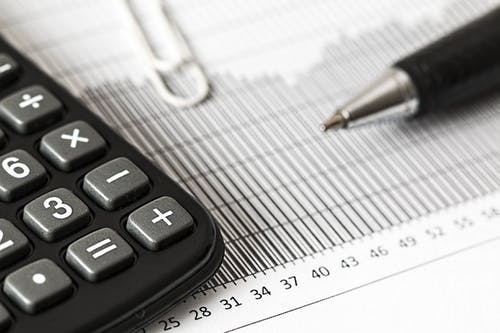The Ultimate Guide to Sole Trader
Everyone dreams of at one point working for themselves. This has seen several people only working up to a certain age then venturing into private practice. Currently, the number of self-employed populations in the UK stands at approximately 5 million. This is quite an increase from the 3.1 million independent population in 2000. The growth has been considerably consistent in all the major economic sectors and both the genders.
A sole trader is one of the most popular forms of self-employment. This in-depth guide gives you all the information you need to know about the sole trader. You will learn what the business model entails, company registration, set up, and how it compares to a limited company.
Let’s get to it.
What is a sole trader?
A sole trader is when you run your business by yourself. Unlike the other types of companies, a sole trader does not have any separate legal identity from the business. As the business owner, you enjoy all the profits accrued and bears all the losses and expenses that come with running the business. You are generally the business as you control all the assets, documentation and any other needed detail.
Advantages of a Sole Trader
The main benefit that comes with working as a sole trader is the complete control over every other aspect of the business. Having the authority means that you don’t have to consult any other party hence faster decision making. The control also means you are responsible for the growth of the business to your liking.
A sole trader set up comes with a competitive advantage. The ease in effecting changes means you react faster to customer needs. You also interact with the customer directly to understand exactly what they want. The personalized service is also excellent for customer experience.
The other advantage that comes with running a sole trade is the ease of set up. Starting a sole trader generally requires a few registration forms and procedures compared to other business units. The ease in the setup also comes as a result of low set up and operational costs.
Running a sole trade comes with considerably lower tasks. It comes with lesser accounting and tax engagement that makes ideal for those who don’t want all the hustle of running a big company. Not only do you get to spend less time on the operations, but you also save money on the lesser tax obligations.
Lastly, given that you are the sole custodian of your company’s books and details, you can protect your privacy as much as you like.
Disadvantages of a Sole Trader
As much as a sole trader comes with several advantages, it also has its fair share of cons that you need to understand. The primary concern is personal liability. The failure of your business puts your income and other assets at risk of covering for the liabilities. The responsibility is also unlimited, which means everything you own is at risk.
The other issue that comes with running a sole trader business in about limited financing as most financial institutions are unwilling to fund this business set up. You need to have a stellar credit history and income ratio to get a loan.
While it might seem all fun running the business by yourself, you cannot be an expert in all aspects. You might struggle to deal with the sides where you are less qualified, leading to business failure. Also, you are never assured of the business continuity in case you die or unable to operate the business anymore.
These disadvantages are some of the reasons why several entrepreneurs opt for limited companies.
How to register as a sole trader in the UK?
Compared to any other business, registering as a sole trader in the UK is quite easy. Before you register your business as a sole trader, use the Employment Status Indicator to check if your work qualifies as self-employment. If it qualifies then proceed to register for a business account through the gov.uk.
The only concern that comes with registering as a sole trader understands if it is the best option for you. Sole trader business is excellent for anyone starting in the business world. It is an excellent option for anyone getting paid for offering services. You also need to register as a sole trader if you make and sell items for profits or earn commissions from your sales.
Now that you have you are ready for registration, inform the HMRC of your intention to form a sole trader outfit. For those who have filed returns before, you need your 10-digit Unique Taxpayer Reference (UTR) for the registration. Otherwise, if you have never filed tax previously, HMRC will send you the codes within ten days through the post. The registration does not come with any form of certification. You also don’t become a part of a database that people can look you up on.
The main benefit of registering as a sole trader is to align your tax assessment. A sole trader comes with a tax allowance that allows you not to pay taxes when you earn less than £1000. The registration is what demonstrates your intentions to send in your self-tax assessment report. You have to send in the assessment report before the 5th October of the business’ second year. For example, if you register your business in the tax year 2019-2020, you have to fill your tax assessment report in before the 5th October 2020. Failure to submit your evaluation comes with consequences like possible fines.
How to set up as a sole trader in the UK?
Starting a sole trade is one of the easiest business options available for the self-employed. Unlike the other business entities that require you to have a unique name, a sole trader does not need any specific names. Given there is no public scrutiny or any other legal obligations allow you to choose any name of your choice. Selecting the name of your choice is time and money-saving. You what have to pay for the name search or wait for the approval.
Starting the operations as a sole trader is another crucial benefit that you accrue wit the business model. You don’t need any expertise or experience in your area or trade. The setup, therefore, is quite easy.
One of the most recurring concerns among sole traders is the possibility of employing. Well, as long as you need extra help in your business, you can always hire. The law allows you to hire based on your terms, and the number of employees depends on your business needs. Once you have employed anyone, you have to collect their national insurance contributions details from remitting all the payments on time. You also have to develop a Pay as You Earn payroll to ensure you remit the requisite taxes.
To ensure the proper operation of your firm, you need to keep detailed financial records. You must record all the income, expenses, and any financial transactions. These details come in handy when filing your tax returns. It determines your allowance, the contributions and the amount of tax you need to pay.
Even though you set up your business as a sole trader, the nature of your business can change fast due to increased income and other factors. The sole trade is quite flexible such that you can easily transform your business into a limited company.
Sole trader vs limited company
Other than setting up as a sole trader, a limited company is the other popular small business structure in the UK. Unlike a sole trader where the owner is part of the business, a limited company is a different business entity with the owner. Setting up the limited company requires a board of directors and shareholders, even when you operate it by yourself.
Both of these business structures come with different pros and cons that you have to consider before settling on the most ideal one for you. Some of the most common differences between a sole trader and limited company are;
Liability

A sole trader comes with unlimited liability due to the lack of a separate legal entity from the business. It implies that every business profit, losses or any other liabilities are part of your responsibility as the owner. You are personally liable for all the failures and debts of the business. You can easily lose your assets in case of the collapse of the company.
Operating as a separate legal entity from the owner, a limited company allows you limited liability. While you can operate the company as a director, the legal and financial obligations do not affect your personal assets. All you do is to act on behalf of the company. All the profits and liabilities belong to the company.
Ease of Set-Up

Setting up a limited company is quite different from setting a sole trader based on the requirements. Unlike a sole trader that does not have any age restrictions or elaborate requirements, you can only form a limited company after reaching 16 years. You should also have no court order barring you from becoming a company director or cases of bankruptcy.
To successfully register a limited company, you must provide a unique name. The name is then protected by law such that no other legal entity can ever use it. To help you look for the availability of your company name search the Companies House WebCheck service. Registering the company name takes around 24hours at the cost of 12.
Tax

As a sole trader, you are responsible for National Insurance and submitting personal self-assessment returns every end of the tax year. Failure to submit these details comes with possible fines. Limited companies, on the other hand, are responsible for corporation tax charged on their profits. You have to pay the tax within the first nine months of the end of your financial year.
Apart from the corporation tax, the limited company also comes with obligations to submit the other company income details to HMRC by filling a CT600 form. The directors must fill a P11S that outlines the benefits and expenses provided by the company. Besides, the director must also include a personal assessment form detailing their income and allowance. For public information, the limited company has to keep detailed financial year-end income statement and VAT returns.
Salary

A sole trader is quite flexible when it comes to paying salaries. As a sole decision-maker and legal entity, you can easily withdraw money from the business as per need basis. Limited company, on the other hand, comes with a defined remuneration procedure. In most cases, directors are paid based on company earnings. The salary is subject to tax as set by HMRC.
For most cases, it provides for a personal allowance limit that determines the obligations and contributions based on different thresholds. In both the sole trader and limited company, you have to keep accurate records of all the withdrawal in salaries for proper record keeping.
Privacy

If you are looking to keep your business information, then you are better off with a sole trader. It has no legal obligations to reveal the financial, leadership, accounts or any other information to the public. For limited companies, the law provides that they share the company’s detailed report with the public. Failure to submit these details can lead to a loss of operations.
Prestige

Given the unlimited liability, sole trader is more like dealing with a person instead of a business. Most contractors and other agencies find it hard engaging with the sole traders due to the risk of failure to honour deals. Limited companies with comprehensive management and director information mean assured credibility. The available public records also ensure that one can assess the company before agreeing to partner.
Most people, therefore, prefer working with limited companies compared to sole traders.
Legal Responsibility

With the unlimited liability, the business owner operating as a sole trader is responsible for any legal obligations facing the business. Your assets are also likely to get affected by offsetting liabilities. For limited companies, directors have the constitutional mandate to manage and control the industry. The directors are likely to be held accountable for the failures of the business.
Which is better between sole trader and a limited company?
Now that you understand all the significant differences between a sole trader and limited company, it might seem dreary settling on the best. Given that both come with their benefits and disadvantages, it all comes down to how you seek to run your business. If you are looking for complete control and small-scale operations, you are better off as a sole trader. Given the directors and public scrutiny, a limited company is excellent if you wish for large scale operations. The limited liability also makes it a great option if you are seeking security.
Sole trader tax in the UK
To successfully operate as a sole trader, you have to understand all the tax obligations. Failure to comply with the tax obligations come with repercussions like fines and other penalties. Given the unlimited liability, you are taxed as a single entity with your business. It implies that your taxes are calculated after deducting the business and personal expenses.
To ensure you abide by the tax obligations, the law provides that you register with the HMRC within the first three months of starting the business. After registration, you must complete yearly self-assessment tax returns as proof of payment.
Most people dread filing the tax returns. They tend to wait until it nears a deadline to work on it. This is quite disastrous as the systems tend to get slower due to overload in that period. Getting a new password can take up to 10 days as HMRC sends the second part through the mail. To avoid any mishaps and stress, file your sole trader tax returns the earliest possible.
There are different tax obligations for sole traders, including;

-
Self Employed Tax
A sole trader is taxed on income just like when working any other job. Like in PAYE the taxes are charged after deducting some allowances from the income. The law provides every person with a personal benefit before taxing your income. The own current benefit is #11,500 per year. Include any other income from different sources when filing for the self-employed tax.

-
VAT
Every business that accrues an income of the VAT level must apply for the tax deductions. The VAT is subject to budget announcements, with the current rate at #85,000 per year. The current VAT rate is 20% filed quarterly. You pay this tax to the HMRC after deducting all the other expenses that come with running the business.

-
Tax Payment on Account
The HMRC provides that you make advance payments towards your tax bill in the form of cash on account. The law requires you to make these payments twice a year unless you have already paid over 80% of the tax or you have a tax obligation of less than #1000.
The amount you pay in tax payment on account is based on your previous tax obligations. There is the possibility of appealing for reduction at the HMRC if you believe you will have lesser tax obligations within the financial year. Still, any amount you pay above the required tax is refundable.

-
National Insurance Contributions
Other than the regular taxes payable to HMRC, the law requires you to make regular contributions to the national health coverage and pension scheme. Different national insurance contribution rates are depending on your profit margins. The lower payment scheme is the level 2 that is chargeable when you make up to #45,000 in profits within a business year.
The law exempts you from paying the level 2 national insurance contribution if you make profits of less than #6025 within the tax year.
The other payment level of the contribution is level 4 that is charged as a percentage of your profits. You will 9% of your earnings when you make between #8,164 and #45,000. For amounts above the #45000, you pay the 9% and an additional 2% on the amounts above the limit.
Age Restriction in Paying Taxes
In most cases in the age restrictions is mostly 18 years. Well, this is different when it comes to paying taxes for the sole trader. Give that you can start operating as a sole trader at 16 years, you are also expected to begin remitting the fees at the same age. The only exemption that comes when you are younger than 18 years is the level 4 tax national insurance contributions. When filling the registration forms with the HMRC, you will tick the exemption.
The changes have been effected in recent updates, as before, most underage would receive waivers even on the level 2 national insurance contributions.
Keeping a Separate Company Account
Running a sole trade as an individual means that you don’t have to create any new bank account when setting up your business. For the business good, you need to set up a separate bank account. Running that different account means that you can easily track company income and expenses.
Some times you might also get higher taxes than you have anticipated. With the separate bank account, you can easily have a fallback place. Once you have the bank account, consider putting away around 25% of your income for the needed security. Failure to meet any other company needs like the tax and other debts can be detrimental to your business.
In Conclusion
A sole trader is one of the most popular business entities in the UK. The ease in ease set, registration and operations make it a variable option for anyone starting in the business world. You also don’t need any special skills or qualifications to start your trade.
Even though you have started as a sole trader, you can still opt for other business options after some time. Once you have the required initial amount, the board of directors and other provisions, feel free to change your sole trade into a limited company.
Author Profile

- Blogger by Passion | Contributor to many Business Blogs in the United Kingdom | Fascinated to Write Blogs in Business & Startup Niches |
Latest entries
 BusinessJanuary 9, 20266 Fastest Cash House Buyers in the UK 2026
BusinessJanuary 9, 20266 Fastest Cash House Buyers in the UK 2026 BusinessDecember 12, 2025The Smart SME’s Guide to Future-Proofing Physical Assets
BusinessDecember 12, 2025The Smart SME’s Guide to Future-Proofing Physical Assets FinanceOctober 28, 2025How to Measure the ROI of Your Promotional Product Campaigns?
FinanceOctober 28, 2025How to Measure the ROI of Your Promotional Product Campaigns? Home & LivingOctober 4, 2025Moving Forward When Leicester Family Dynamics Change
Home & LivingOctober 4, 2025Moving Forward When Leicester Family Dynamics Change





